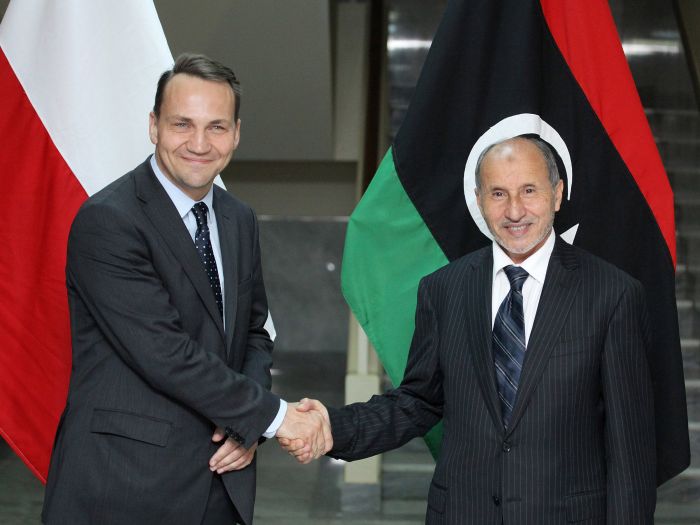
From Radek Sikorski, Foreign Affairs: We Poles, like you Americans, are a revolutionary people. So when others get rid of their tyrants, our initial reaction is one of solidarity. But we also know the rules of politics, that crises are usually taken advantage of not by the best people but by the best-organized people. There is very little that we as outsiders can do to affect events, except to set a good example. We sponsored a multipart documentary in Arabic on the Polish democratic transition on Al Jazeera. We sent Lech Walesa to Tunisia to tell them how we did it. I was the first EU foreign minister in Benghazi, when Qaddafi was still fighting. And meeting with the then Provisional National Council made me realize that the challenges that these societies face are identical to what we in central Europe faced two decades ago.
For example, are you going to have a unitary state or a federation? What is the role of organized religion in your country going to be? Do you amend the existing constitution, or do you write a new one? Do you want a presidential or a parliamentary system? What do you do about the personnel of the old regime, meaning secret policemen but also judges, teachers, bureaucrats, diplomats, all of whom got tainted in some way? What do you do about the archives of the old regime? These usually contain explosive material about large swaths of a society that can make or break careers. Do you destroy them, lock them up, make them accessible to the public? How do you write a media law in a democracy, and how do you grant broadcasting licences so that oligarchs don’t dominate the airwaves?
In various countries in the post-Soviet world, these issues were dealt with differently, and so people in the Middle East today can see what decisions lead to what results. That is why some of these countries think of us as role models. We are more comparable to them than the United States. And they are more willing to take lessons from us than from their former colonial masters or from countries with strong ties to their former dictators. Poland is true to herself when we play the role of a beacon of international solidarity on democratization. This is what the majority of Poland’s developmental assistance is devoted to. We’ve created a Polish Foundation for International Solidarity. And during our presidency of the EU, we initiated the creation of the European Endowment for Democracy, consciously modeled on its U.S. counterpart.
Excerpts from interview with Poland’s Foreign Minister Radek Sikorski by Gideon Rose. (photo: Pawel Supernak/PAP)
Image: pap%205%209%2013%20Poland%20Libya.jpg
